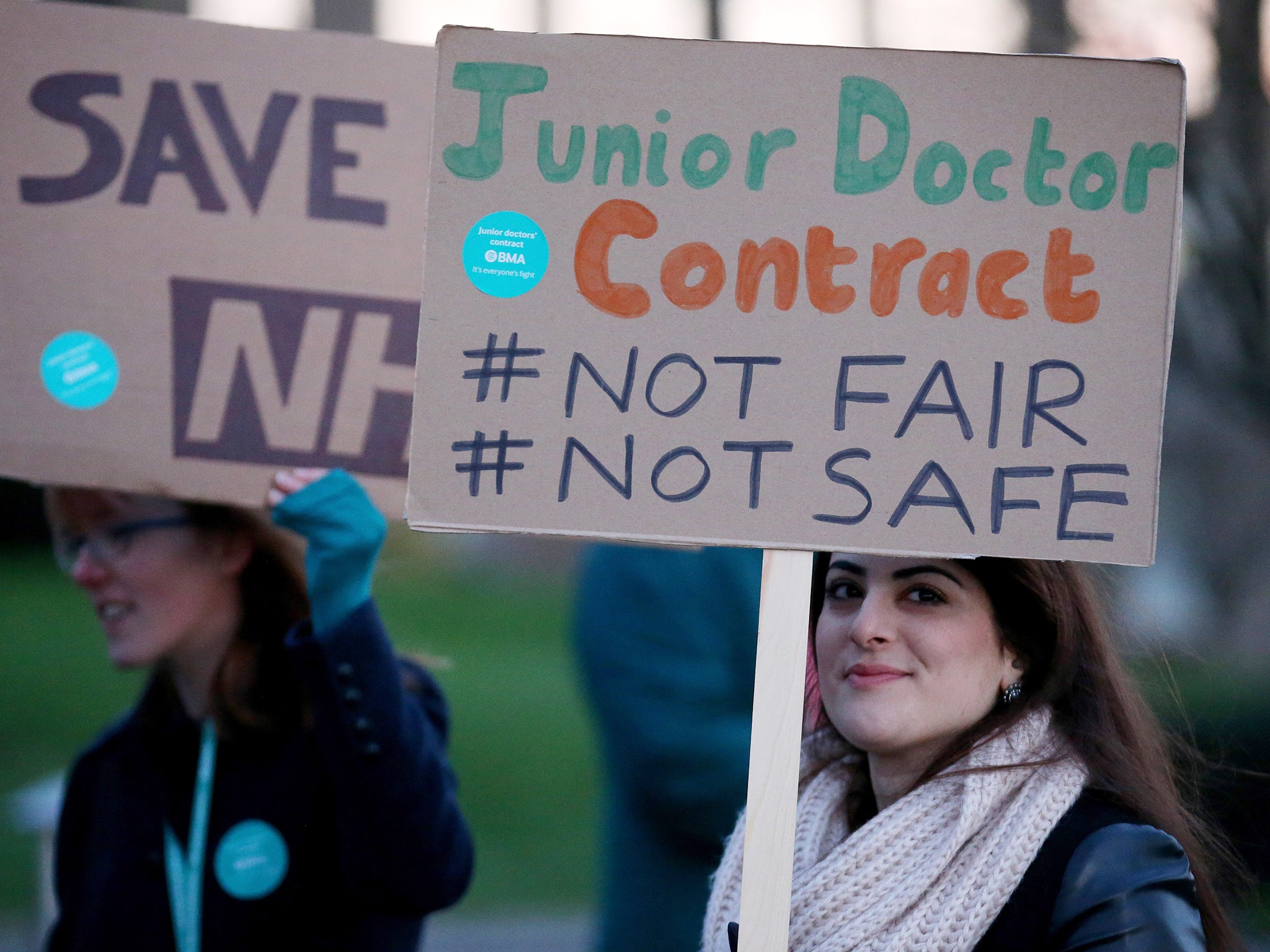This junior doctors contract throws women under the bus. You'll be shocked by the detail
It seems single parents - disproportionately women - are considered expendable

I am an Indian doctor. This is not uncommon.
But my story is a little different, as growing up in a patriarchial Punjabi family surrounded by male doctors, I was the first woman in my family to qualify from medical school. As a child, all I ever wanted was to be a doctor. In fact, I made the decision to become a doctor at the age of four-years-old (I wanted to be like my father) and my whole school career was based upon that ambition. At the eleventh hour, when I was seventeen, the decision was made by my father that perhaps medicine was not the best career for a woman and that I should think again.
I had the necessary grades, but this was the early 1990s. My father was a consultant obstetrician and gynaecologist in a small town in England and could see the difficulties of the path I had chosen, from the struggle to maintain a family life alongside a demanding career, to the gender disparity in senior positions. There were very few female consultants at the time.
In the end, I decided not to apply for medical school. I was essentially being told not to be a doctor – but to marry one instead. Despite medicine being my lifelong dream, I acquiesced. I entered into pharmacy and accepted the “part-time” lifestyle more amenable to child care. Perhaps I thought I would learn to know my limits. Instead, I watched my younger brother become a doctor and reach dizzying heights of success.
As I grew older, I could not hold it in any longer. I applied successfully to Cambridge University and qualified as a doctor in 2007. As an Indian woman, I have always been so grateful for the chances offered to me in this country. Would I have had the courage to do what I did in the country of my ancestors? I know growing up in the UK has shown me that despite a gender gap, women still have the chance to rise and smash the glass ceiling.
Fast forward nine years and now as a junior doctor, I am locked in a bitter dispute with the government about the junior contract. Throughout the past six months, junior doctors have faced more vitriol, attack and disdain from the government and media than I ever thought possible. We are accused of being “Moet medics”, “militant medics”, or “radicalised”. I have even been charged with “hijacking” BBC Question Time on the 14th January for trying to correct some of the misinformation being propagated.
Last week the imposed junior contract was finally published, alongside an Equality Impact Assessment which undertaken by the Department of Health. The analysis acknowledges that changes in the contract will disadvantage women particularly those training part-time, carers and lone parents. However it states, "any indirect adverse effect which may occur is a proportionate means of achieving a legitimate aim". This shocking phrasing reminded me of military jargon, with women being seen as collateral damage in the perceived aim of achieving an uncosted, unmodelled and as yet undefined 7 day NHS.
It went even further suggesting that increased weekend and evening rostering may impact upon single parents (who are disproportionately women). To hear such things in a contract imposed by a government that has pledged to end discrimination against women was quite astounding.

Medicine has changed: in the Sixties less than 10 per cent of doctors were female. Now almost 60 per cent of registered doctors are women and most of those are of child-bearing age. Yet we still know that only 24 per cent of medical directors are women and in some surgical specialties only one in ten are women.
Women still struggle to gain equal treatment in the workplace as they still do the majority of child-rearing and may elect to work part-time. Until now, salaries for female doctors in training have kept pace with men’s due to small annual pay awards to prevent part-time doctors - of whom the vast majority are women - earning less than their full-time colleagues over time. The new contract will remove these safeguards widening the gender pay gap in medicine. The Kings Fund suggest that the gender imbalance in medicine still persists due to “…stereotyaping and discrimination, organisational cultures” play a part in perpetuating the imbalance.
We should be trying to make things better, not be going backwards with a draconian junior doctors contract that will hit women hardest. Commentators have accused female doctors as being part of the problem for choosing to work part-time and facing conflicts between domestic and professional duties. Some have even wondered how to persuade female doctors to “lean in”. I think most female junior doctors would say that they already “lean in” – day after day, year after year.
Join our commenting forum
Join thought-provoking conversations, follow other Independent readers and see their replies
Comments
Bookmark popover
Removed from bookmarks